Korea Bolsters Ties with NATO
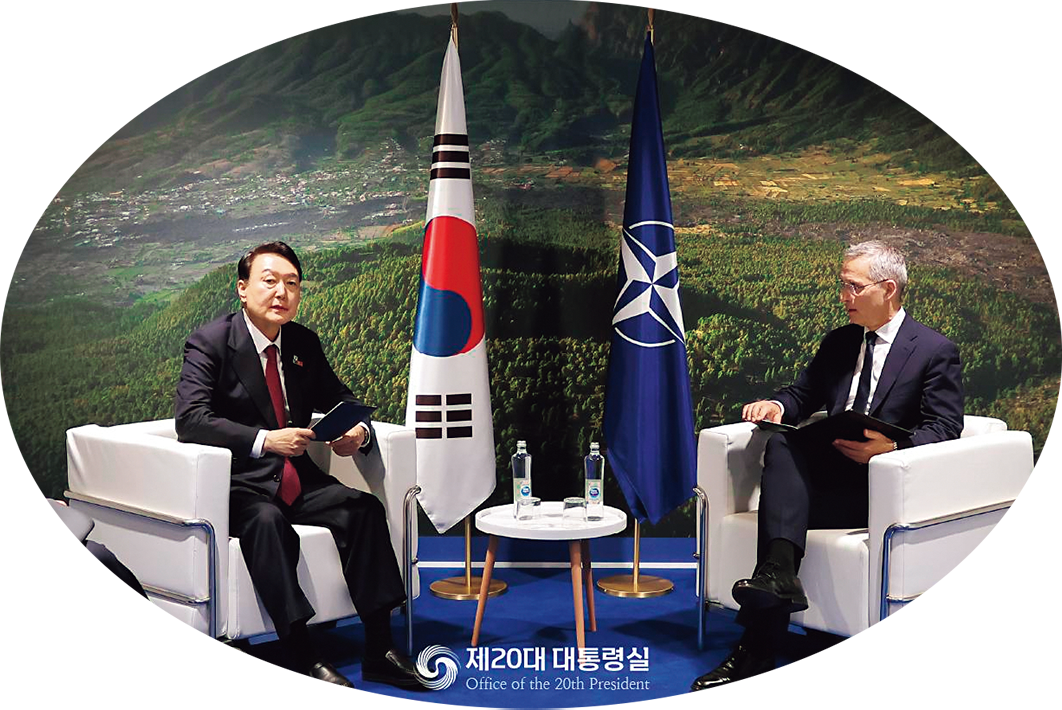
President Yoon on Jun. 30 holds talks with NATO Secretary General Jens Stoltenberg. © Office of the 20th President
WRITTEN BY
Sohn Ji-ae
A South Korean leader attended a NATO summit for the first time, seeking to align the nation more closely with the U.S and allies in Europe. Linking up with NATO is expected to ramp up Seoul’s response to and defense against emerging security and economic threats.
Expanded Security Network
In late June, South Korean President Yoon Suk Yeol, together with the leaders of Japan, Australia, and New Zealand, attended a summit of the 30-member North Atlantic Treaty Organization (NATO) in Spain. It was the first time that a South Korean leader has attended a NATO summit and it also marked Yoon’s debut on the multilateral diplomatic stage since his inauguration in May.
Since forging a global partnership with NATO in 2006, Seoul has closely cooperated with the alliance to respond to tasks of the international community. The 30 NATO member states are the nation’s traditional allies who share universal values and norms such as liberal democracy, rule of law, and human rights.
Experts say that NATO’s invitation to Indo-Pacific countries including South Korea indicates its intention to seek support from Asian countries on major security issues, including the war in Ukraine, and find ways to cooperate on policies in response to security concerns in the Indo-Pacific.
“President Yoon’s attendance has historical meaning since South Korea is a major partner of the alliance in the Indo-Pacific region,” said NATO Secretary General Jens Stoltenberg.
Yoon’s attendance at the NATO summit for the first time as a South Korean president has significant meanings: establishing a comprehensive security network along with European allies for effectively responding to emerging national security issues, especially its northern neighbor.
Joint Fight Against Threats
In Madrid, Yoon looked to play a bigger role and forge European partnerships in the face of emerging security issues, including North Korea’s evolving nuclear threats.
In his remarks at the summit, Yoon urged the NATO allies to show their strong will to “pull North Korea onto the path of denuclearization,” calling the North’s nuclear and missile programs “a clear violation of the U.N. Security Council resolutions” and “a serious challenge to peace and security of the Korean Peninsula and the whole world.”
To cope with the North’s nuclear and missile threats, Yoon has since his inauguration emphasized the importance of strengthening extended deterrence by building up relations with Seoul’s allies. The president believes that South Korea’s improved relationships with NATO have the potential to bolster its defense against North Korea’s growing arsenal of missiles and nuclear weapons.
In his belief, South Korea should build a comprehensive security network with the NATO allies in such a way that it could involve not only military but also economic and human security, including climate change and supply chain challenges.
To facilitate such partnership with the Atlantic Alliance, Yoon announced that South Korea will establish a diplomatic mission to NATO at its Brussels headquarters. By setting up a mission, the country is committing to more consistent dialogue with NATO, expanding information sharing and providing a platform to strengthen the nation’s network with its allies.
In addition to attending the NATO summit, Yoon held a series of bilateral and trilateral summits on the sidelines with the leaders of participating countries, including Canada, the U.K., France, Poland, the Netherlands, the Czech Republic, and Denmark.
Among others, a trilateral meeting of the U.S., Japan, and South Korea was held for the first time in nearly five years, sending a strong signal about their intent to move beyond historical issues and improve the trilateral relationship to jointly deal with security challenges ahead.
Global Pivotal State
Since he took office, Yoon has emphasized his policy goal of making the nation a “global pivotal state” by bolstering cooperation with “like-minded countries” to promote liberal democratic values of freedom, peace, and prosperity. He believes that the nation will be able to play a greater role on the global stage if it networks and collaborates with like-minded states on areas of security, energy, climate change, green technology for carbon neutrality, defense industries, and many more.
In this regard, his attendance at the NATO summit is a significant start for South Korea in building closer ties with the like-minded North Atlantic partners who have common goals to address. His presence along with the NATO allies also demonstrated the potential for the nation to play a greater role in such multi-party platforms.
NEWS TICKER
Other Articles
-

Special Ⅰ More Than Just the Big Screen
-

Special Ⅱ Multi-Content Multiplexes
-

Trend Food on Screen
-

Hidden View Another Screen
-
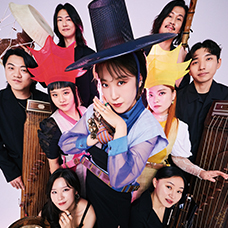
Interview Band Ak Dan Gwang Chil
-
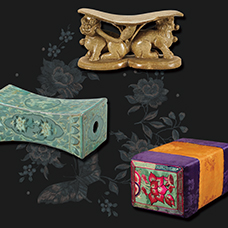
Art of Detail Sweet Dreams
-

Film & TV The Roundup
-

Collaboration Exclusive and Practical
-
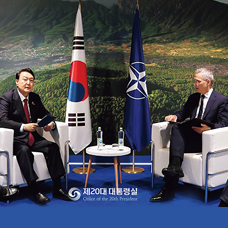
Current Korea Korea Bolsters Ties with NATO
-
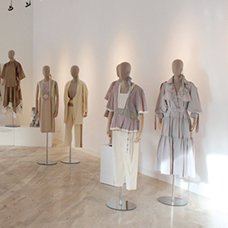
Global Korea Spain’s First K-fashion Exhibition
